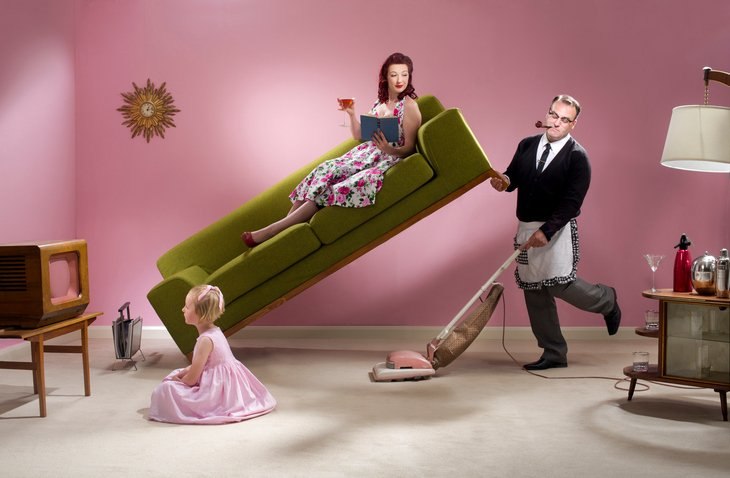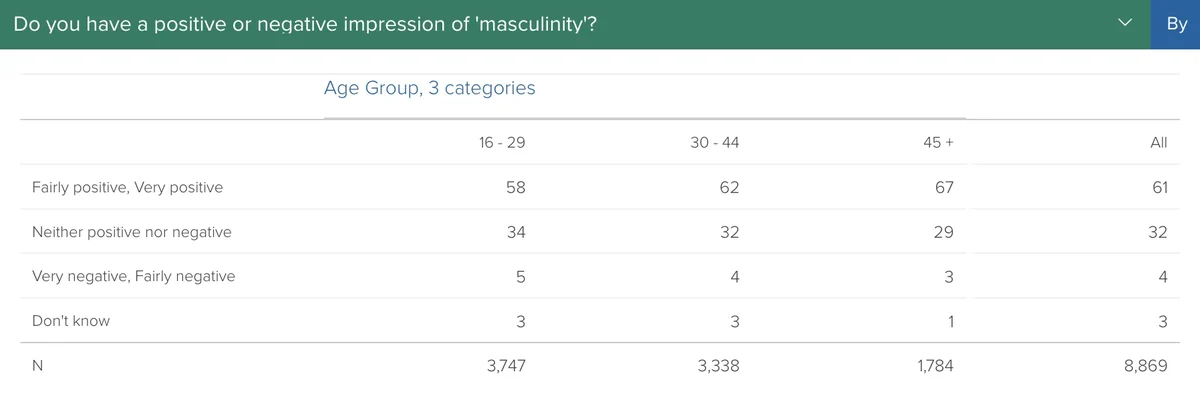
Majority of APAC residents (56%) believe masculinity and femininity are socially constructed
For much of human history, gender roles have divided people into one of two groups from birth; male and female. Quite what these roles entail varies hugely, depending on which period in history and which societies you look at. Though many consider contemporary interpretations of gender to be fixed, new research from YouGov into attitudes towards gender across the Asia-Pacific suggests change is currently afoot.
Less than half of young people believe they conform to gender stereotypes
One significant finding is the scale of the generational shift in terms of how young people perceive the strength of their own gender identity. On a scale of 0-10, where 0 is completely masculine and 10 is completely feminine, there is a 17% gap between male 16-29 year olds (39%) and over 45s (56%) in those who define themselves as either completely masculine (0) or near-completely masculine (1). This divide is also seen among women; while just under a third of women (31%) aged 16-29 say they are almost entirely feminine (at level 9 or 10), nearly half (49%) of women over 45 do.
The generation divide is also seen in attitudes towards masculinity and femininity more generally; while two-thirds (67%) of those aged 45+ see masculinity as either very positive or fairly positive, this falls to 58% among 16-29 year olds. This divide is more muted when it comes to attitudes to femininity, though the trend is the same; 58% of over 45s view is as positive, compared with 54% of 16-29 year olds.

Young people are also less likely to believe that they conform to gender stereotypes than older generations. 43% of 16-29 year olds either strongly or slightly agree that they conform to gender stereotypes, compared with 51% of over 45s.
Masculinity is most associated with strength, femininity is most associated with sensitivity
However, when asked to select three traits that respondents most associate with each gender, generations seem to converge. Out of 21 traits, the three that 16-19 year olds most strongly associate with masculinity are strength (chosen by 55%), assertiveness (27%) and intelligence (24%) and sensitivity (42%), emotional (33%) and affectionate (29%) for femininity. Those over 45s identify strength (56%), assertiveness (31%) and decisiveness (25%) as the traits they most associate with masculinity and sensitivity (47%), emotional (36%) and affectionate (32%) for femininity.
39% of respondents believe gender roles are a barrier to equality
Yet, despite having shared ideas about what constitutes masculinity and femininity, the majority of those polled (56%) believe that they are social constructs. This view is most strongly held in the Philippines (68%), Thailand (60%) and Australia (58%), but is less widely held in Vietnam, where 39% of respondents agree.

APAC residents are also divided about the impact that gender roles have on society, with nearly 4 in 10 of those polled (39%) agreeing that gender roles are a barrier to equality. While those in Thailand (49%), Singapore (45%) and Australia (44%) are most likely to believe this to be the case, just a quarter of Indonesians (24%) agree.
*Data was collected online between 5 July and 13 July 2017 using YouGov’s panel of over 5 million people worldwide. It was weighted to be representative of the online population. Sample size: Asia Pacific (n = 8,869; Australia: 1,006; Hong Kong: 950; Indonesia: 1,169; Malaysia: 1,552; Philippines: 1,045; Singapore: 1,062; Thailand: 1,080; Vietnam: 1,005)